Meeting
QUINCY JONES
A living legend, a national treasure, the Godfather of Music. Over a six-decades long career and collaborations with music icons such as Frank Sinatra, Ray Charles, Whitney Houston, Chaka Khan and Michael Jackson, 27 Grammys and all-time most nominated Grammy artist with 79 nominations makes Quincy Jones one of the most influential men in the music business. He has traveled all over the world, but Sweden has a special place in his heart. I’m back together with Quincy who first stepped into Östermalms Saluhall with me three years ago, although he’s already been a frequent visitor at his favorite spot Lisapåtorget. A place he hopes to see restored when the temporary market hall is no longer located at the town square.
BY: Lina Bielsten PHOTO: Magnus Elgquist and Lina Bielsten (private photos)
“I love Michael Jackson and what you did with his music”, “You’re my inspiration”, “The Dude was the first album I bought and I still treasure it”. People are gathering around Quincy Jones as we are trying to leave the lobby at Grand Hôtel to our dinner reservation. The man, who is world renowned for both his own music as all the artists he has produced, takes his good time to stop and answer the questions. Me on the other hand is a bit stressed as we are behind schedule, not that is seems to bother Quincy. “Thank you so much and where are you from?”, Quincy asks one of the women who just approached him. She wants to take a picture and show her relatives back home that she met her idol. “I’m from Sweden”, the woman answers surprised. She thinks this should be fairly obvious since we are in Stockholm. “No, I mean, originally,” explains Quincy. The woman then tells him the birth countries of her parents, but that she herself was raised here in Sweden. “Yes, I could see that you have these features. I think it is important to be proud of our heritage. I am fortunate to have traveled all over the world and I’ve learned to see from people’s traits where they are from”, says Quincy who is familiar with more than 25 languages.
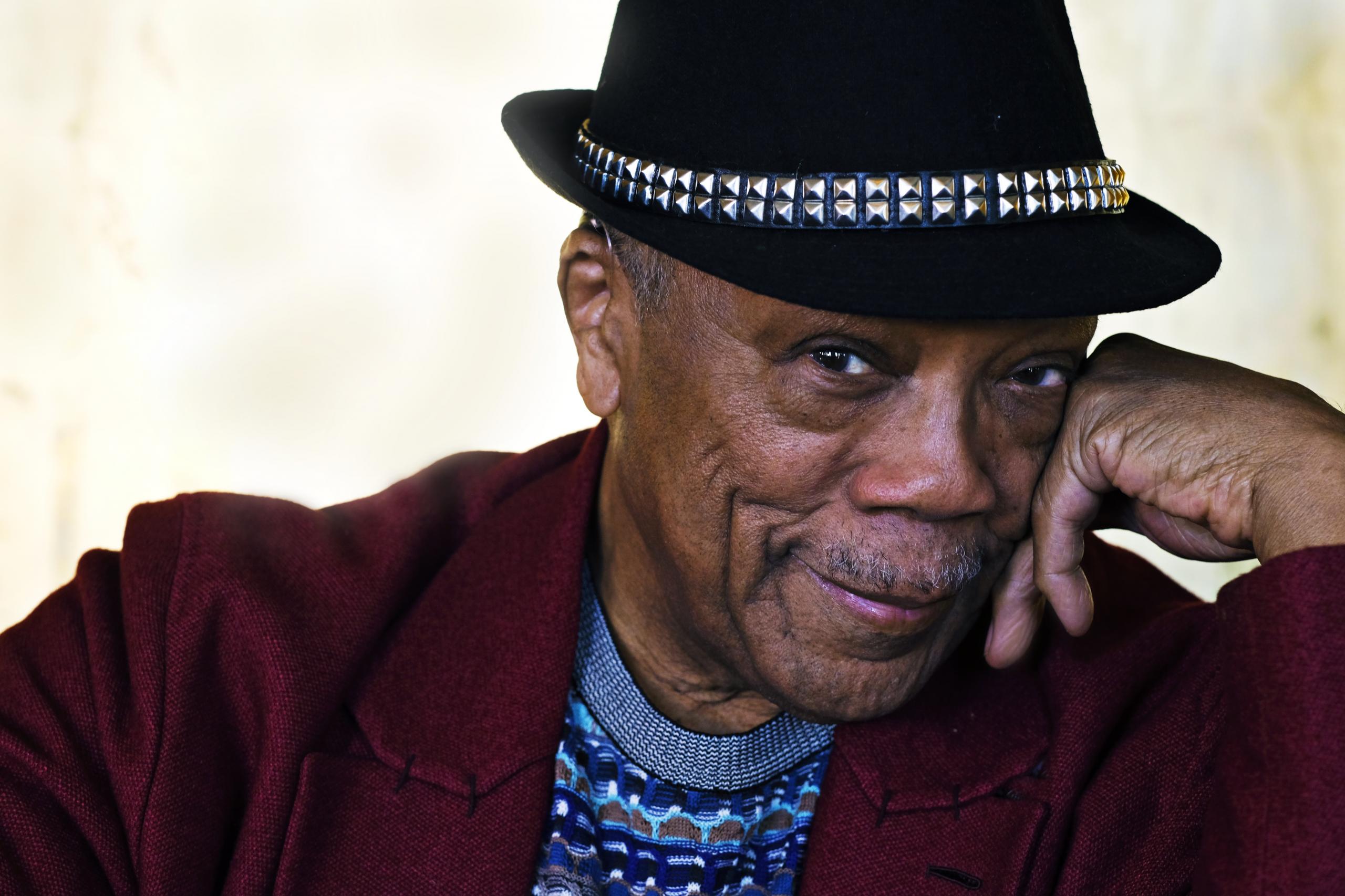
Quincy is always interested in what other people are doing and where they come from. I learned that early on a couple of years ago when we first got to know each other through a mutual connection. The fact that we became friends is still somewhat unreal to me, but that’s another story. Quincy, often called “Q”, has worked with many of the world's greatest artists and also been part of their success, but he is not setting up any walls as other famous people tend to do in public. He is not inaccessible. Quincy is quite the opposite. For example, during those two weeks of events and activities, both business-related and private gatherings, he chose to sit in the open so that people can come up and say hello. Which of course everyone wants to do, no matter where we are.
Clint Eastwood wrote in his foreword from Quincy’s autobiography The Complete Quincy Jones – My Journey & Passions: “Everyone liked Quincy, and he was the kind who just liked everybody. He never seemed to hold any animosity towards people with other ideas or of different nationalities, a very open-borders kind of man, something you can also tell just from listening to his music. For a guy who loves jazz and other forms of really fine music, he’s done stuff in genres that you wouldn’t expect him to do. He’s not afraid to step out and do things that are outside his vernacular, his upbringing. The legacy he’ll leave to the world is genuinely tremendous”.
”You can either let the pain of life cloud your mind and stop you from moving forward or let it be the very thing that makes you stronger. It´s your choice!”
CHICAGO TO LOS ANGELES THROUGH EUROPE
Quincy Delight Jones Jr. grew up during America’s worst economic depression in the rough part of Chicago’s South Side, living next door to gangsters and experiencing the pain of his highly educated mother suffering from mental illness and later institutionalized. Luckily he got out of the ghetto when his father took the family to Seattle. Quincy found a new community, started to play different instruments but returned to the trumpet which was his love. A career in music was his way out of poverty and a potential life of violence.
Despite all the struggles Quincy never looked back with bitterness. A dark childhood is something he shared with one of his first and most lasting alliances and friendships, Ray Charles. The great jazz and rhythm & blues musician, who was blind from the age of six was a mentor to him.
– I met Ray Charles at 14, and he was 16. But he was like a hundred years older than me… Back then there was no black literature, no tv, no Colin Powells or Muhammad Ali’s or Michael Jordans to identify with. All we had was the radio, but the black characters on the radio dramas, soap operas and comedies were either servants or whites imitating blacks.
– Radio was great for my imagination because I was able to use it to imagine the white characters as black role models. The music and movie business came of age in the U.S., and began to thrive, in the 1920 and 1930s. But for black Americans, there were limited opportunities – not only in the entertainment industry... In every industry. It’s like we didn’t exist, so we had to figure out who we were going to be as black kids.Ray and Quincy used to talk and dream about the day they would be able to sit in a restaurant and order any food they wanted, and get on planes and fly anyplace they wished to go to, and do records and symphonies and movies together.
– And all those things happened. We lived out each and every one of our dreams together. As we used to tell each other: “Not one drop of my self-worth depends on your acceptance of me.”, says Quincy.
“When Frank Sinatra asked if I wanted to do an album with him and Count Basie. I said Is the Pope a Catholic? Are you kidding? I worked with him from ’63 until he died and conducting Basie’s band for Frank Sinatra – it doesn’t get any better than that for an arranger.”
Quincy’s firm belief is that things in the past should be left there, get over it and get on with your life. And so he did. Talented at a very young age, Quincy played backup for Billie Holiday and toured the world with the Lionel Hampton Band. During the 1950s, Jones successfully toured throughout Europe with a number of jazz orchestras and played with several talented Swedish Jazz Musicians such as Bengt-Arne Wallin, Arne Domnérus and Egil Johansen.
As musical director of Harold Arlen’s jazz musical Free and Easy, Quincy Jones went back on the road again. A European tour closed in Paris in February 1960. With musicians from the Arlen show, Quincy formed his own big band, called The Jones Boys, with eighteen artists. The band included double bass player Eddie Jones and fellow trumpeter Reunald Jones, and organized a tour of North America and Europe. Although the concerts were received really well, concert earnings were
not enough for such a large band. Insufficient budget planning led to an economic breakdown; the band had to split up and Quincy almost went bankrupt.
– I lost a great deal of money, but the band became the most popular band in Europe. That’s when I discovered that there was music, and there was the music business. If I were to survive, I would have to learn the difference between the two, Quincy Jones has said about the situation.
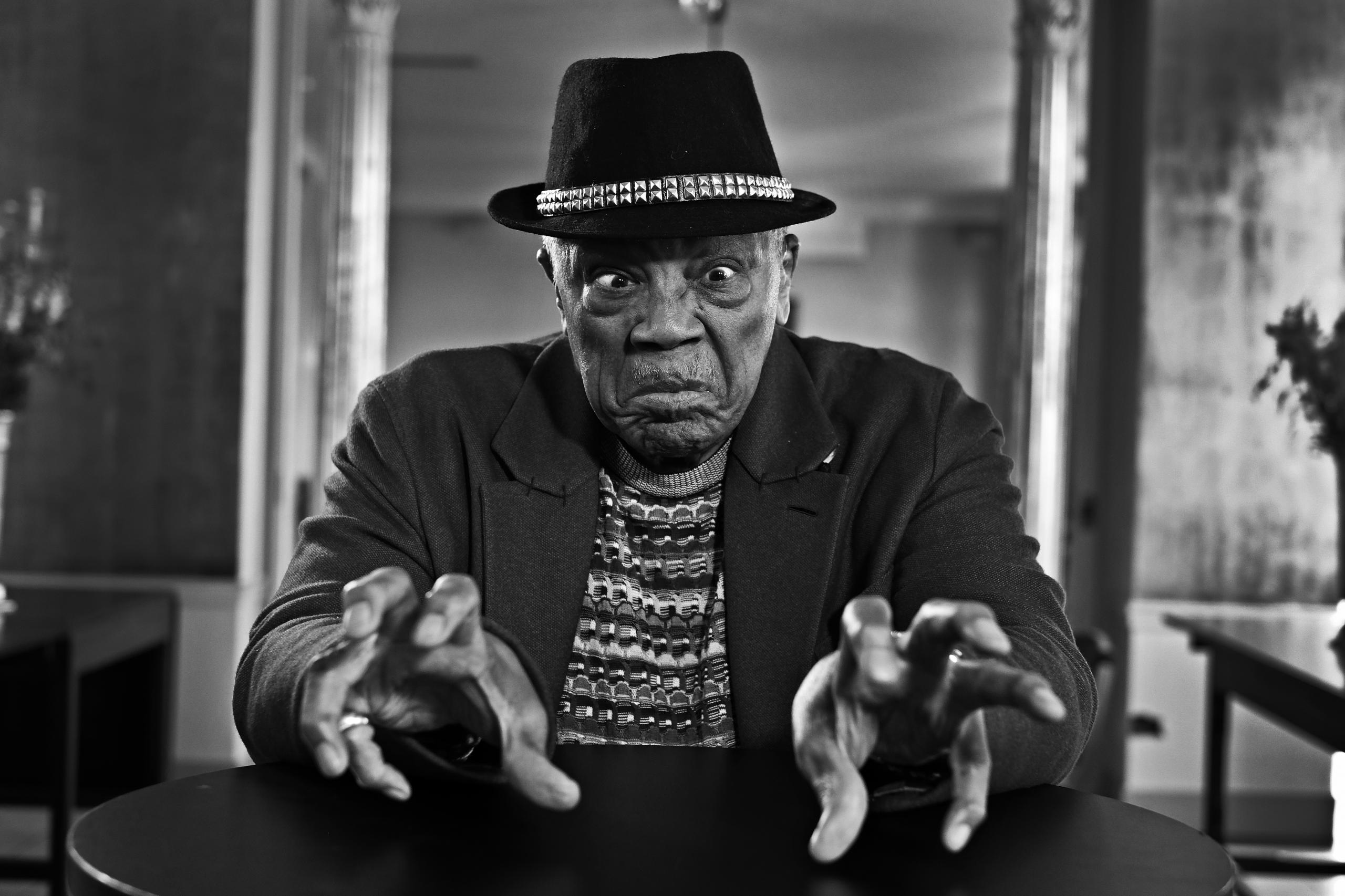
“Epic Records told Michael Jackson that I was too jazzy and couldn’t make a record with him. The first album I produced for Michael was called Off the Wall. It was the biggest black album in history. Our next album together was Thriller. Its impact exceeded our wildest expectations, selling 56 million copies – the biggest selling album in history.”
As one dream ended, another door opened. Quincy started his next chapter in his successful career which has included arranging albums for Frank Sinatra, Ray Charles, Dinah Washington, Sarah Vaughan, and Count Basie; composing the scores of such films as The Pawnbroker, In Cold Blood, In the Heat of the Night, and The Color Purple, and the theme songs for the television shows Ironside, Sanford and Son, and The Cosby Show; producing the bestselling album of all time, Michael Jackson’s Thriller, and the bestselling single “We Are the World”; and producing and arranging his own highly praised albums, including the Grammy Award—winning Back on the Block, a striking blend of jazz, African, urban, gospel, and hip-hop. His musical achievements, in a career that spans every style of American popular music, have yielded an incredible 79 Grammy nominations, and are matched by his record as a pioneering music executive, film and television producer, tireless social activist, and business entrepreneur. He is without doubt one of the great African American success stories of this century.
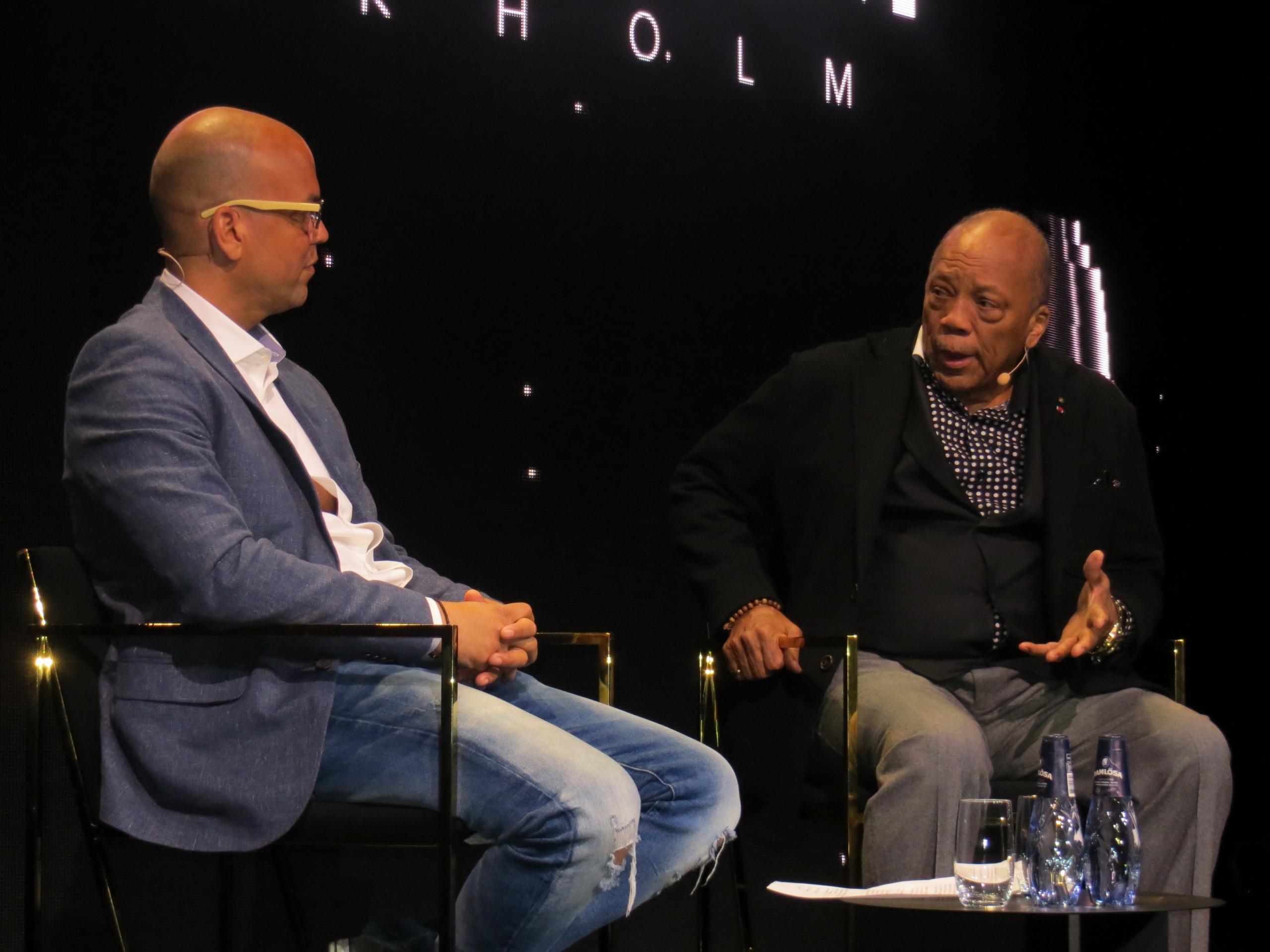
”My father has the most amazing work ethics I've seen, always so curious and with untiring energy!” - Quincy Jones III
QUINCY JONES & QUINCY JONES III AT BRILLIANT MINDS
One reason for Quincy Jones being in Sweden in June 2016 was his presence at the Polar Music Prize (which he received himself in 1994) and also as a guest of honor at the conference Brilliant Minds. Welcoming people to the creative capital of the World, The Brilliant Minds conference during two days in June is the flagship event of Symposium Stockholm. Created by Daniel Ek (Spotify) and Ash Pournouri (founder of At Night Management), Symposium Stockholm is a an all-week event gathering innovative international luminaries, global decision-makers, and young emerging talent just before the Polar Music Prize. Wrapping up this two-day conference was a piece called ”An Artist’s Saga – A lifetime in music unveiled on stage between father and son”, with Quincy Jones III as moderator. An event Q was looking forward to, as he gets to do it with Snoopy (one of his sons nicknames).
– He has grown up to become such a great person. If he wasn’t my son, he would be my best friend, he says to me. Just like his father, Quincy Jones III, is a successful record and movie producer. He is currently also a jury member of Swedish Idol.
Quincy is one of the few living legends of the highest caliber. When he enters the stage the room is full of excitement, you could touch the atmosphere. For many participants this is the greatest thing that could happen. “There is nothing bigger than Q”, one of them says to me afterwards. I bump into more people when I’m heading backstage again and they all agree that it was magical to experience a musical icon. During this father and son-session, I think what touched people the most, besides Q’s amazing achievements and giving them Michael Jackson (which seems to be this generations favorite topic) is the heartfelt chat. It was more like listening to a private conversation than a scripted dialogue and personally I feel they should continue to give special performances at other seminars. The true connection between the two is hard to reproduce. Besides his son, Quincy has six daughters and a whole bunch of grandchildren. Q always lights up when he talks about his big family, how important they are to him and show me pictures of them all the time. “I have daughters from the age of 23 to 63 and they are all smart, beautiful and strong”, he tells me with price in his voice.
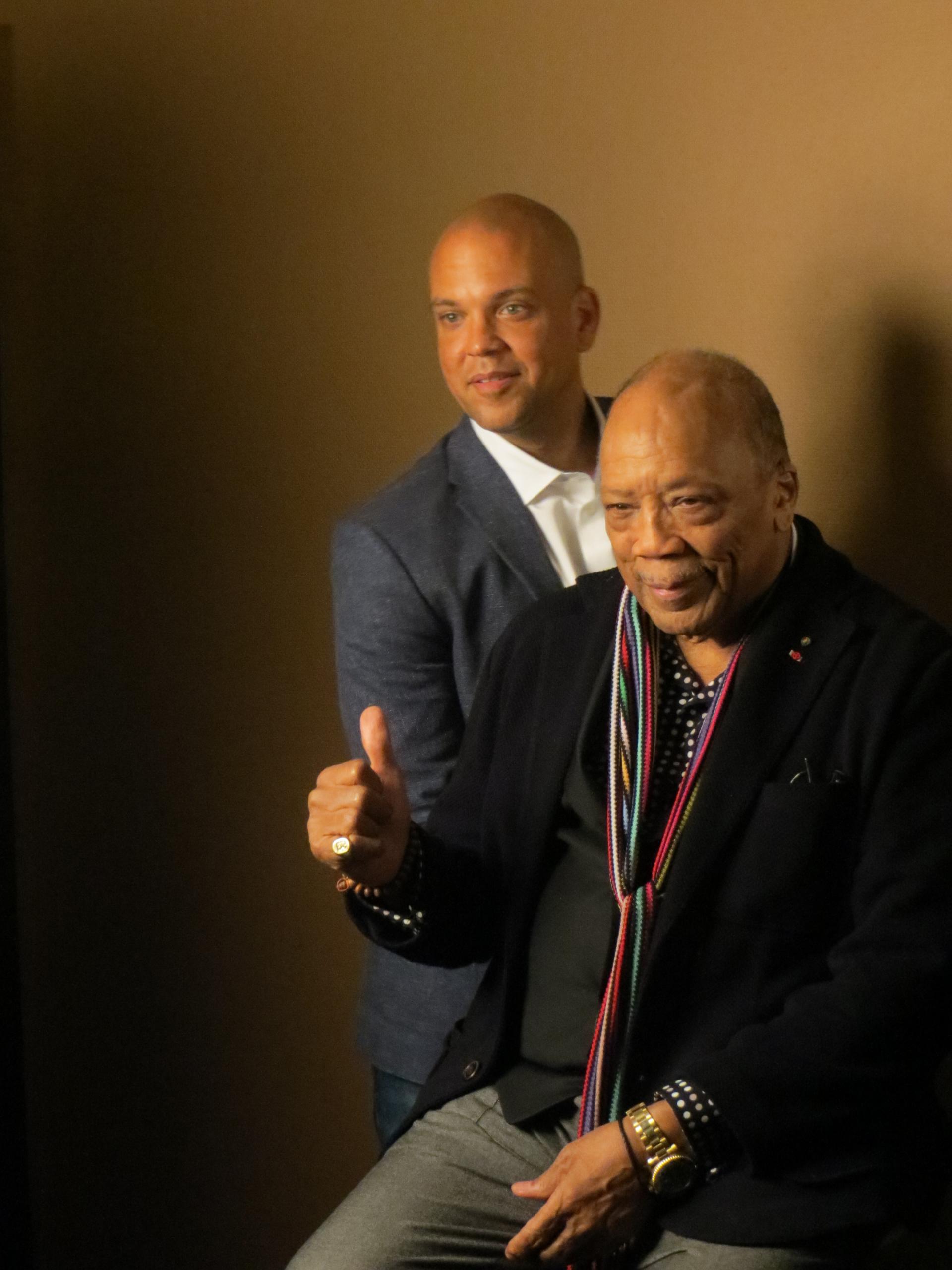
Quincy’s son QDIII grew up in Stockholm and started his career at the age of 16 when he was discovered as a break dancer and played one of the lead roles in the Swedish cult movie “Stockholmsnatt”. He got his first gold record for the music to the movie. 17 years old he moved to the U.S to pursue his dream of becoming a hip hop producer and later started to work with the first artists at Def Jam, an American record label that played an important role in early American hip-hop’s emergence. He has worked with artists such as LL Cool J, Tupac, 50 Cent, Lil Wayne, Lionel Richie, Dr. Dre, Queen Latifah and Prince.
Next stop was our photo shoot for the magazine at Grand Hôtel, which not only hosted the Brilliant Minds conference but is also Q’s second home in Stockholm. We were directed to one of the beautiful lounges overlooking the Royal Palace.
– Isn’t this the most spectacular view. I always stay at the Grand, it’s the best hotel in Stockholm, says Quincy. There is a piano in the corner and he sits down to play. The TV team that follows Q for his next documentary is also with us during our photo session. When he starts to play spontaneously, it feels like the whole world stands still for a while. I almost need to pinch my arm. Here we are, listening to a small private gig with Quincy Jones. If we did not have to continue with the cover shoot I could have stayed there and listened for hours.
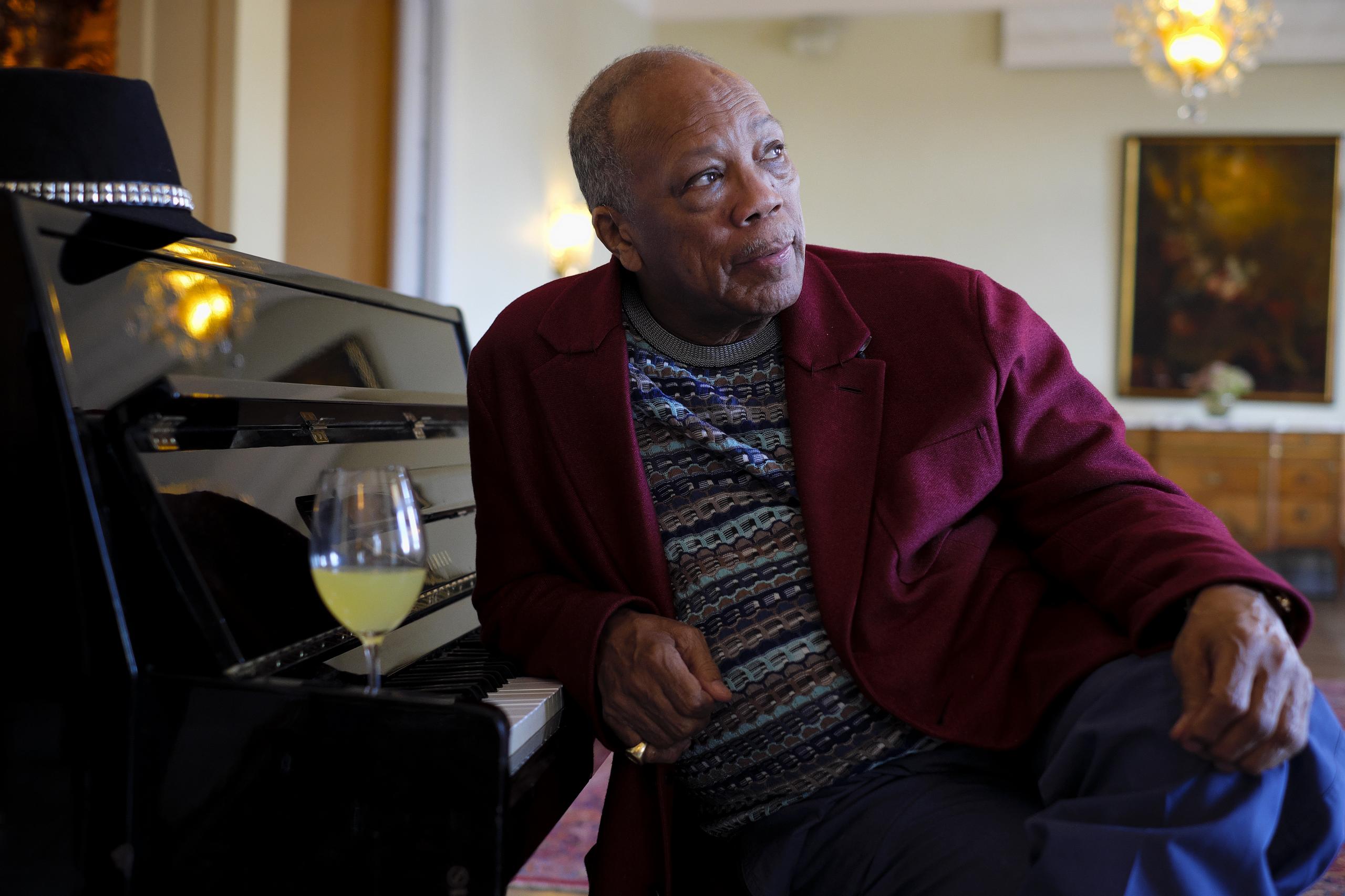
Another place close to Quincy’s heart is the Vasa Museum. He says he tries to go there every time he’s in Stockholm.
– I love the Vasa Museum. I have an exact replica of the ship at home in Los Angeles, my own miniature Vasa, he says and smiles. Then he starts to tell me the story about “the Vasa”. Although he has told me the story a few times before it doesn’t matter, because he does it with such commitment and often it’s a new detail added to it. Later in the evening when we are heading out to Skype-founder Niklas Zennströms private island Rosenön for a dinner party, he looks out the window as the car is driving from the city to Dalarö. He sighs a bit.
– Sweden is so beautiful, I miss this scenery, the nature and how clean everything is. This country is unique that way. “Ack Värmeland du sköna”, he says and starts humming. The song, based on a traditional Swedish folk melody, was later produced in an English version by jazz musician Stan Getz who toured around Sweden in 1951. Oh Värmland you comfortable which was released under the name “Dear Old Stockholm” has since then been recorded by many artists and established itself as a jazz classic.
”When people ask why I haven't retired yet...I just say, you either rock the boat or sink it.”
THE ESSENCE OF Q
– I tell my kids and I tell proteges, always have humility when you create and grace when you succeed, because it's not about you. You are a terminal for a higher power. As soon as you accept that, you can do it forever, says Quincy Jones at Grand Hôtel.
PHOTO: Magnus Elgquist
When I’m with Quincy I sometimes see people from the far gathering up the nerve to come up and present themselves. Famous Swedish music producers who turn into little children, a bit shy and out of their comfort zone. Other times a queue is formed as they are waiting to take pictures with him and he says yes to every photo, smiles and does his characteristic “thumbs up”. Then he makes them do a fist bump with him before they leave. The joy on people’s faces is priceless. He has made their day and it only took a few seconds. It’s that simple and in his big heart there is room for everyone. Even for those who cannot give him anything back. Compared to many Swedish celebrities that I encounter at events, Q chooses to not just hang out with his peers, he wants to talk with different people and have genuine conversations. A few were curious of why he chose me as a companion every day. Maybe some people thought I was his PR assistant. Surely a young Swedish woman cannot be friends with a legend like Quincy Jones? Others wondered, is she his new girlfriend? The speculation says more about the people who make them, than about our true friendship.
As for myself, I’m thankful for every moment I get to spend with such a great role model, not only in music but as a human being. When he calls me sometimes, and speaks in half-English/half-Swedish, he always makes me smile. “Have you eaten any köttbullar and potatismos”, he says. Swedish meatballs is one of the traditional dishes that Quincy loves. “Heeeeelan går, schuuuung hopp farrellallan lallanlej”, Quincy sings and tries to pronounce the words correctly from a known snapsvisa that Swedish people sing during Easter, Midsummer and Christmas. He learned it from Swedish singer Barbro "Lill-Babs" Svensson, a dear long-time friend of his. Most of all, I treasure when I get to hear Q’s life stories, share laughs, enjoy our passion for food, discuss music and enjoy each other’s company. Not through social media. In real life. Quincy doesn´t even have a cell phone himself (his accounts are handled by his team) and even if he did, a cell phone would not be in the center of attention. He wants to spend quality time with people and talk. Something that is rare in these times and which I consider a true luxury.
I remember the first time I showed Quincy Jones around in Östermalms Saluhall. He loves Swedish food and he is also a big fan of Lisapåtorget, a popular fish and seafood restaurant owned by Lisa Elmqvist. But for some reason he never went into the actual food hall in the historical building. So one day I took him on a private tour and we had dinner after all the stores had closed, except one restaurant. Afterwards, he asked if he could go up to my office in the attic, to see where I create my magazine. As the founder of hip hop magazine Vibe in 1993, Quincy shared his thoughts on how much hard work the production is and the amount of respect he has for my passion. A very sweet thing to say coming from someone at his level. Then he took one of each issue to bring home, since he thinks they are of such high quality. That’s even sweeter.
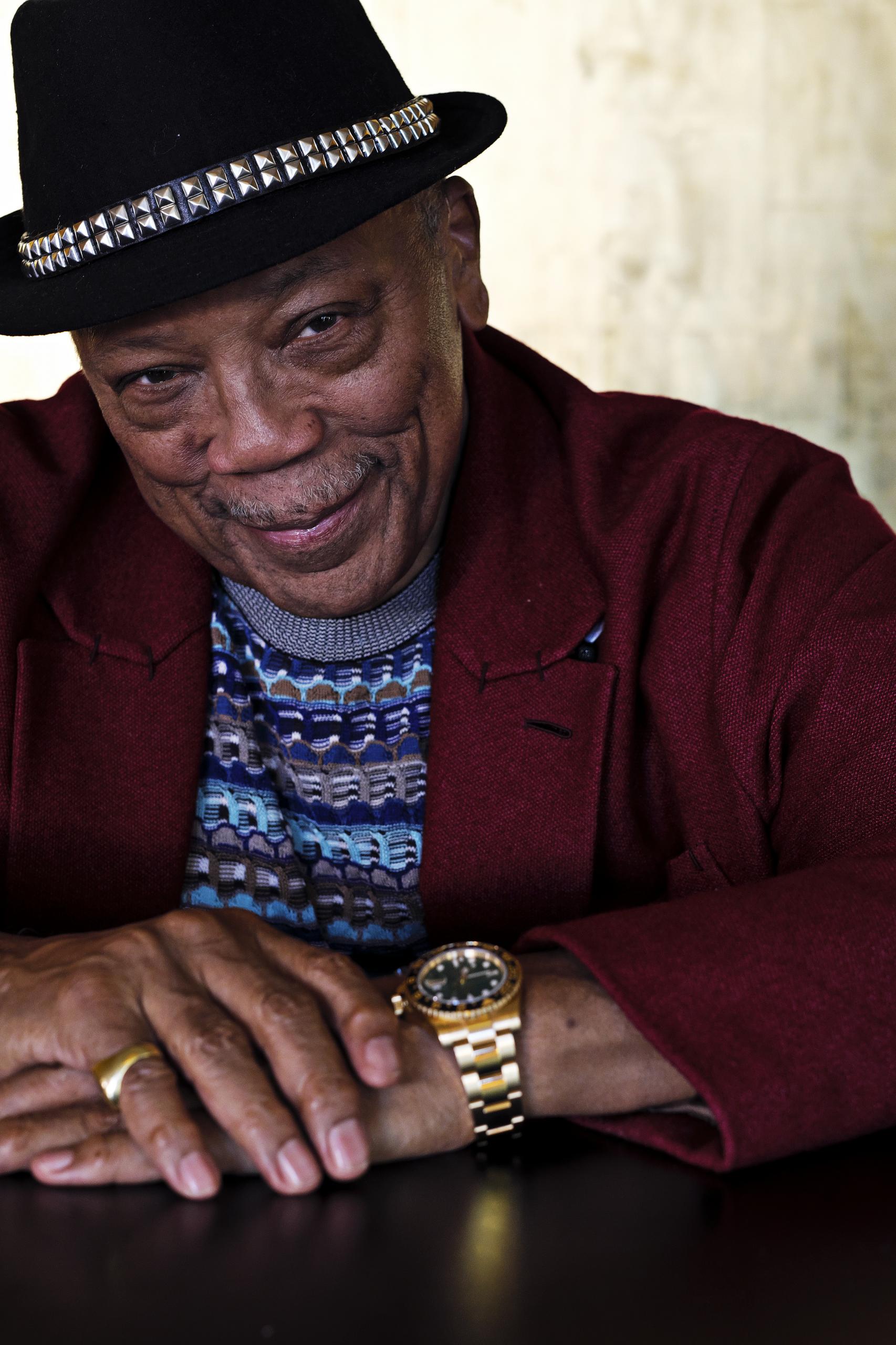
But this is the essence of Q. In every moment he tries to shine the light on other people. Also, he talks very warmly about his old musical friends from Sweden. One of which I have the privilege to call my friend as well for a few years, the talented jazz musician Bengt-Arne Wallin. Bengt-Arne Wallin directed the Bohuslän Big Band at the tribute concert to Quincy Jones in Ystad, 2013. This was the year I met Quincy Jones for the first time and Bengt-Arne Wallin joined us for dinner a few nights, and after that he became my kindred spirit.
Bengt-Arne, also known as B-A, was just the same as Quincy and together they were nothing short of wonderful. Giving praise to one another and calling each other “brother from another mother”. I loved listening to Quincy and Bengt-Arne when they talked about being a musician in the 50s. Quincy came to Sweden in the belief that there was no jazz here and when his own band fell through, they were stranded. Lucky enough the Swedish folk parks hired the them instead and the musicians ended up playing more than 60 gigs in a few hectic summer months. ”It saved the lives of both me and my band”, as Quincy has said in previous interviews. Bengt-Arne became one of Quincys closest friends and they kept in touch through all the years.
One of my sweetest memories of Bengt-Arne Wallin is from Nisse Landgren’s show at the Stockholm House of Culture and City Theater where B-A was the musical guest. As the host Nisse asked a question, or rather, he said a year and B-A started with a long story that lasted a few minutes. Then he excuses himself, “I’m like a tap, you must stop me. You can just say a word and I start…”. “Nisse laughed heartily and explained to his role model that it’s one of B-A’s best qualities. And it’s true.
That is what made him so lovable, Bengt-Arne Wallin was a magical storyteller and it was both educational and fun to hear him talk. He became someone I appreciated a lot the following years and I cried uncontrollably when I heard the news that B-A passed away suddenly last fall. His big smile, unique fashion style and endless energy was exemplary. Even if it was only for a short while, he touched my heart forever and we miss him more than words can say!
– Bengt-Arne Wallin, my brother. Losing him was so difficult. He was a beautiful, beautiful man, says Quincy.
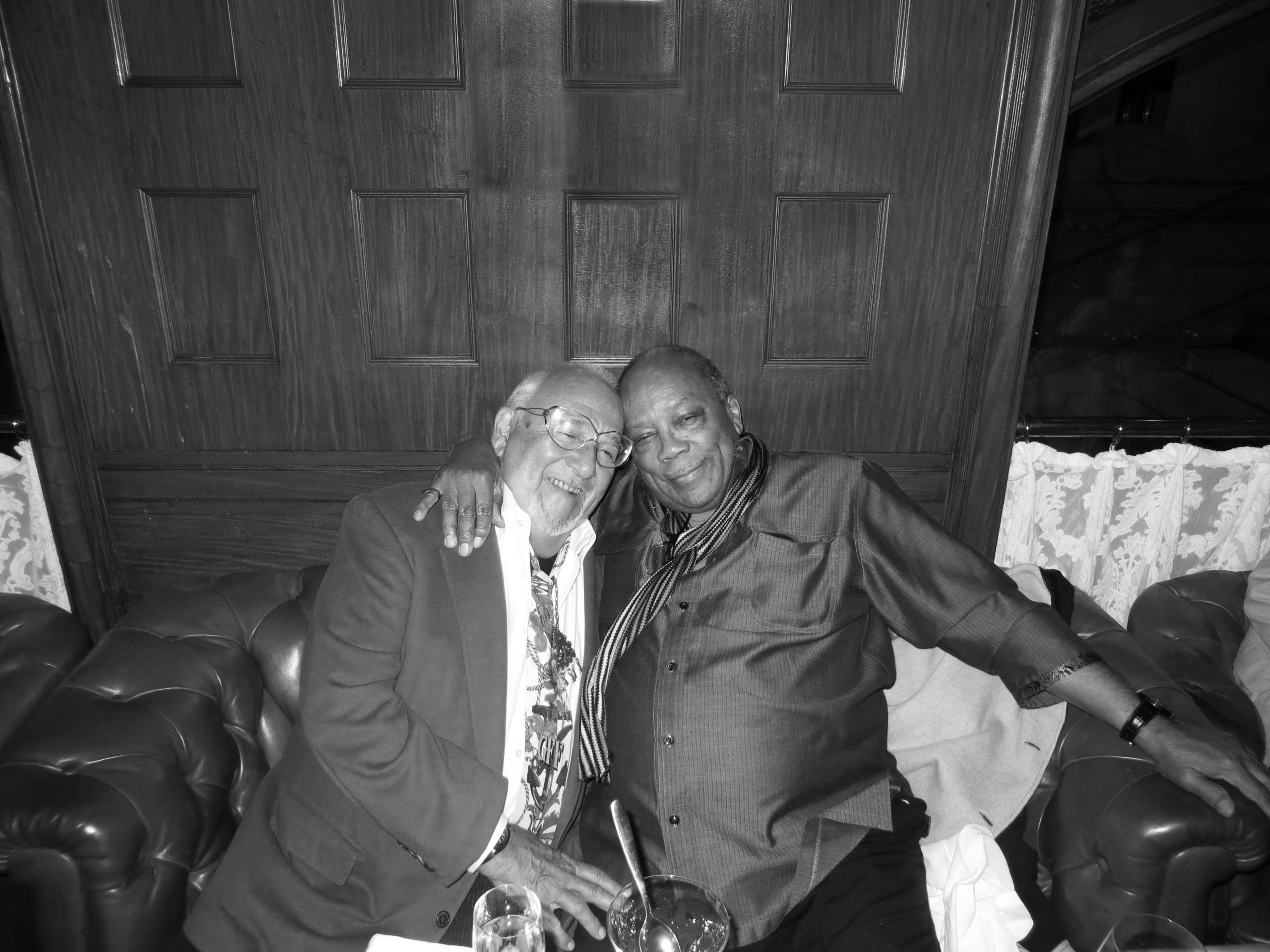
Best friends for life. Musicians, songwriters and producers Bengt-Arne Wallin and Quincy Jones.
It’s an honor for me to call Quincy Jones a friend and I wonder if we will ever see anyone accomplish so much as he has done in a lifetime. He is a true inspiration. To capture the life of Q is not something that I would even attempt to do. There are not enough pages in this magazine to even attempt such a thing and it has already been done masterfully in his autobiographies. I strongly recommend, not only his fans but any music enthusiast, to buy the latest one, The Complete Quincy Jones: My Journey & Passions. As Bono in U2 says in his introduction in Quincy's autobiography: ”If God has a jukebox, I know which name is on more of the selections than any other. It starts with Q. It ends there, too”.
Quincy Jones with chief editor Lina Bielsten, Östermalms Saluhall Magasin.
More of Quincy Jones
Profession: Producer, conductor, arranger, film composer, trumpeter (jazz) and pioneering entrepreneur.
Born: 1933, in Chicago.
Lives: Los Angeles.
Family: Children Jolie, Tina, QDIII, Rachel, Kidada, Rashida and Kenya, and lots of grandchildren.
Nicknames: Frank Sinatra was the first to call me Q in 1962. Oprah calls me Anotha motherless mofo from Mississippi, My brother Lloyd called me Dewey. Count Basie called me Young blood. Clark Terry called me Sackadoodoo. Phil Woods called me Dark Gable. I called Ray Charles 69 and he called me 70 (he told me to stop calling his name out in public, so I picked 69...because he sure was one with the ladies...). I’ve got so many more, but we would be here all year!
Favorite place in Sweden: The Vasa Museum, I always try to go when I´m in Stockholm.
Mentors: Clark Terry, Count Basie, Dizzy Gillespie, Miles Davies, Sarah Vaughan, Billy Eckstein, Nadia Boulanger, Bobby Tucker and Billie Holliday.
Role Model: One of the greatest thrills of my life is having shared the planet with Nelson Mandela, and my 36-year friendship with him.
Fun memory: Paul McCartney & the rest of The Beatles didn’t come to the Academy Awards as they didn’t think they had a chance of winning. Then “Let it Be” won... And I had to stop conducting to accept it on their behalf.
Some career highlights: Polar Music Price Winner 1984, 79 Grammy nominations, 27 Grammys and seven Academy Award nominations. Lifetime Achievement Award from the LA Jazz Society, 2016. Production of the single “We Are The World”, 1985. #1 in the U.S and raised over million (equivalent to 6 million today) for humanitarian aid in Africa.
When I was the happiest: Conducting and arranging for Frank Sinatra and Count Basie at the age of 31. That was probably the most exciting engagement of my life.
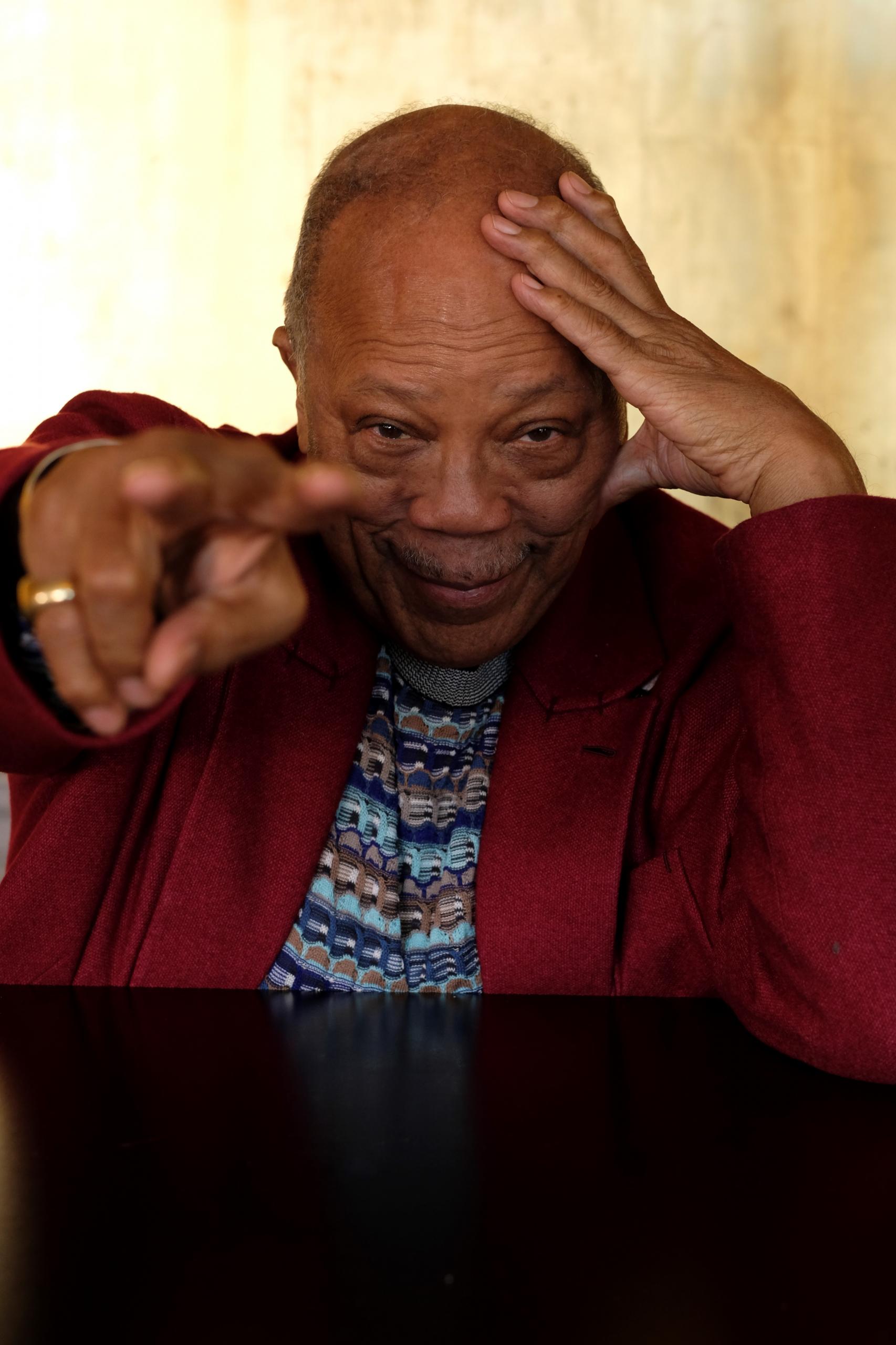
“There is no division in his heart about people whatsoever, and so, no matter who you are, when you are around him you feel like you’re the most special person to him. That is the first time I’d ever been around anybody like that, not to mention somebody who’s famous, or has the reputation that he had.” - Oprah Winfrey
”Quincy Delight Jones Jr., is more than an American treasure. He is the entire treasure chest.” - From the preface by Maya Angelou, in the autobiography The Complete Quincy Jones: My Journey & Passions.
Text: Lina Bielsten. Foto: Magnus Elgquist.
Östermalms Saluhall Magasin, exklusiv intervju med Quincy Jones. Bilder ägs av Bielsten & Co och är skyddade enligt upphovsrättslagen.
The book The Complete Quincy Jones: My Journey & Passions. www.amazon.com
Follow Quincy Jones on Instagram: www.instagram.com/quincydjones